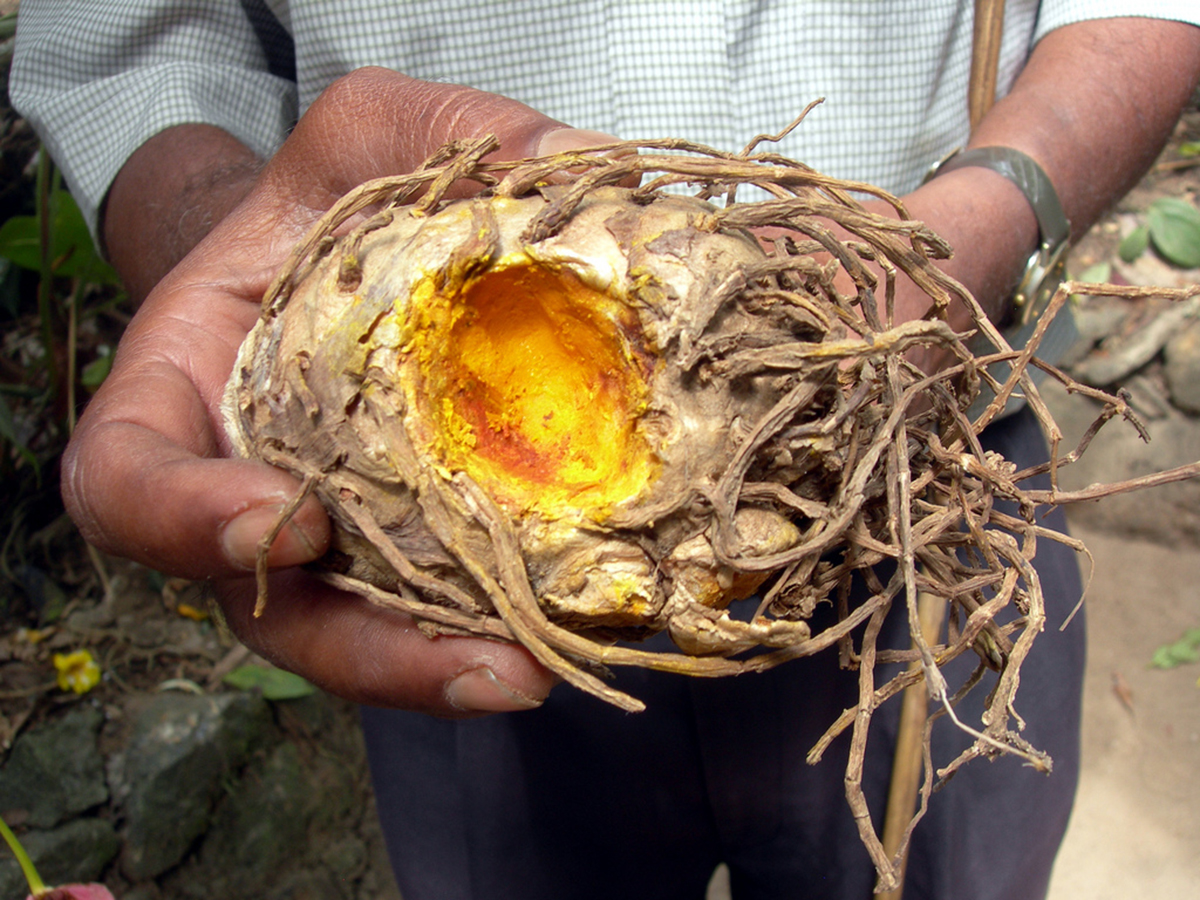Table of Contents
Many promoters of natural therapies are especially enthusiastic about curcumin, the yellow-orange antioxidant found in the spice turmeric. There are a number of general properties of curcumin that pique the interest of people interested in cancer treatment.
- Conventional cancer treatments kill cancer through the process of necrosis. They kill a tumor, and then the body has to deal with a mass of dead tissue. Curcumin kills cancer by activating a process called apoptosis. Individual cancer cells "commit suicide," but at different rates, so the body doesn't have to deal with a huge mass of dead tissue.
- Curcumin activates a gene called p53, which acts as a kind of "watchdog" to prevent the multiplication of certain kinds of cancer cells.

- Curcumin shuts down the production of four enzymes that help mitochondria make energy, but only in cancer cells. Curcumin doesn't affect these enzymes in healthy cells.
- Curcumin shuts down the production of enzymes that "unzip" DNA so cancerous cells can multiply. It does not have this effect in healthy cells.
- Curcumin interferes with the ability of testosterone to attach itself to prostate cancer and testicular cancer cells, preventing stimulation of cell growth by the hormone.
- Curcumin interferes with the ability of insulin to attach itself to certain kinds of cancer cells, preventing the action of insulin-like growth factors.
- Curcumin interferes with the action of an enzyme called glyoxylase, which enables cancer cells to use sugar.
- Curcumin interferes with the action of an enzyme called ornithine decarboxylase, which is especially important in the production of energy in leukemia cells.
There are applications of curcumin for breast cancer, brain cancer, bladder cancer, basal cell carcinoma, colon cancer, liver cancer, non-small cell lung cancer, prostate cancer, lung cancer, leukemia, lymphoma, melanoma, and more. Curcumin is active at every stage of cancer in different ways. It is by far the most extensively studied and most active natural treatment for the most different kinds of cancer.
So every cancer patient should be taking curcumin, right?
Actually, there is a downside to curcumin for some cancer patients.
- By the time you have stage IV cancer, very few treatments act predictably. There have been studies that found that curcumin extended life even in stage IV cancer, but none that found that it is curative.
- For some reason not yet explained, curcumin is useful in stages I, II, and IV of most kinds of colon cancer, but it makes stage III worse.
- Most forms of curcumin (with the notable exception of a product called Longvida) are activated in the liver through a process called glucuronidation. This means that taking those forms of curcumin can reduce the ability of the liver to detoxify other treatments through the process of glucuronidation. Taking curcumin with the chemotherapy drugs cyclophosphamide (Cytoxan) and teniposide makes those drugs more toxic, rather than less.
- Just as turmeric was combined with black pepper in Ayurvedic herbal medicine, curcumin is often combined with a chemical from black pepper called piperine to make it more easily absorbed by the digestive tract. The piperine in the product interferes with the liver liver enzyme CYP3A4, which processes paclitaxel, docetaxel, tamoxifen (Taxol), cyclophosphamide (Cytoxan), doxorubicin, irinotecan, and about 20 more common chemotherapy drugs.
None of this means that graviola, curcumin, or other herbal products never have a place in cancer treatment. They need to be used judiciously, with the help of a knowledgeable herbalist or a doctor who knows a great deal about herbal medicine. Herbs can help you fight cancer, but they never do the whole job. Use the right herb at the right time to get the benefits of both natural and conventional medicine.
- Ben-Arye E, Popper-Giveon A, Samuels N, Mutafoglu K, Schiff E, Omran S, Charalambous H, Dweikat T, Ghrayeb I, Turker I, Hassan A, Hassan E, Nimri O, Kebudi R, Silbermann M. Communication and integration: a qualitative analysis of perspectives among Middle Eastern oncology healthcare professionals on the integration of complementary medicine in supportive cancer care. J Cancer Res Clin Oncol. 2016 Feb 1. [Epub ahead of print] PMID: 26833203.
- Rister, Robert S. Healing without Medication. Kindle edition, 2016.
- Photo courtesy of steenbergs: www.flickr.com/photos/steenbergs/6865121460/
- Photo courtesy of pathwithpaws: www.flickr.com/photos/pathwithpaws/5638185450/
- Photo courtesy of pathwithpaws: www.flickr.com/photos/pathwithpaws/5638185450/


Your thoughts on this